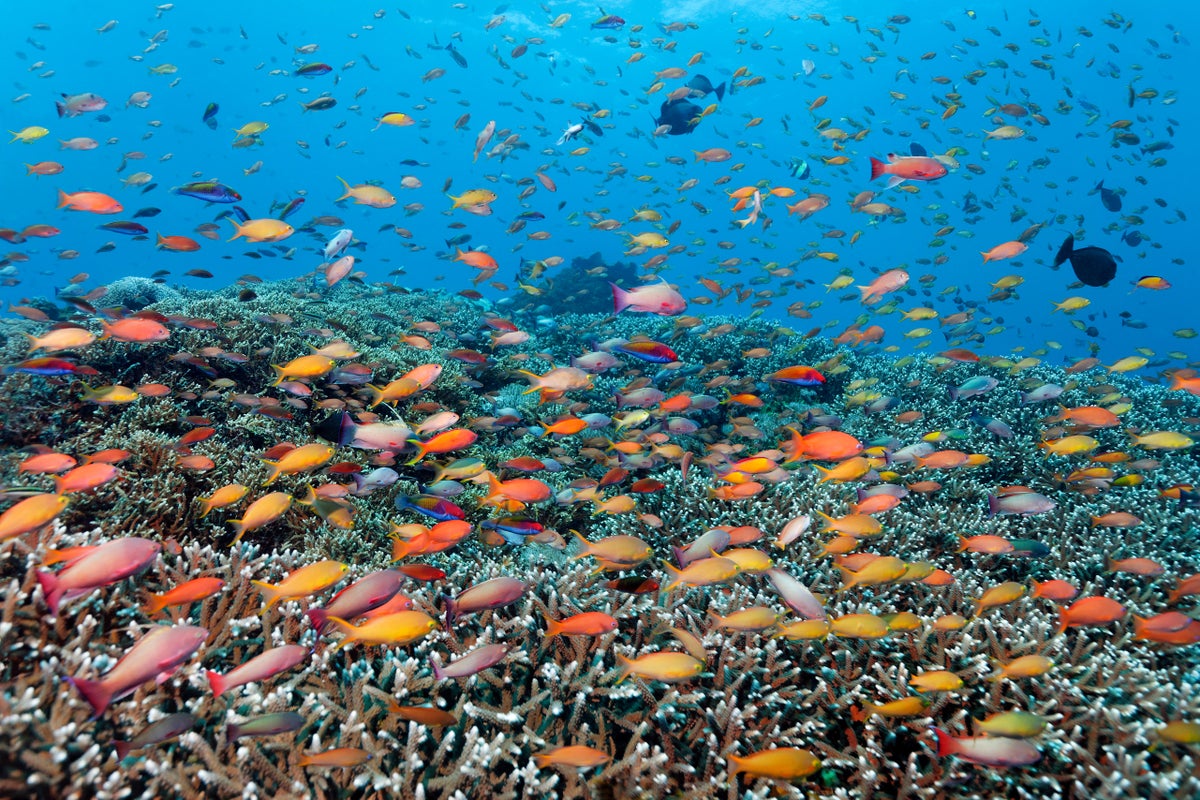
Support truly
independent journalism
The Great Barrier Reef, the largest living ecosystem on Earth, is facing an existential threat, scientists warn, as ocean temperatures reach their highest levels in 400 years.
A new study by researchers from Australia says that unless global heating is stopped, this natural wonder may not survive for future generations.
Sea surface temperatures in waters surrounding the Great Barrier Reef this year reached their hottest levels in more than 400 years, the study published in Nature on Thursday found.
“The reef is in danger, and if we don’t divert from our current course, our generation will likely witness the demise of one of Earth’s great natural wonders, the Great Barrier Reef,” Benjamin Henley, lead author of the research, said in a press briefing on Tuesday.
“The world is losing one of its icons,” Mr Henley, who is also a lecturer at the University of Melbourne and an honorary fellow at the University of Wollongong, said. “I find that to be an absolute tragedy. It’s hard to understand how that can happen on our watch in our lifetime. So it’s very, very sad.”
The temperatures in the sees around the GBR have been rising consistently since the 1900s,due to human activities like burning coal, oil and gas that increased dangerous greenhouse gases, after centuries of a stable environment.
From 1960 to 2024, the study’s authors observed an average annual warming for January to March of 0.12C (0.22F) per decade.
The study says the “unprecedented” heat on the sea surface around the natural wonder is driving increasingly frequent mass bleaching events that are putting it in danger.
In fact, since 2016, the reef has experienced five summers of mass coral bleaching when temperatures turned so high that the corals started losing their colour as the algae that gives them nutrients and colour is expelled by corals under heat stress.
These bleaching events happened during five of the six warmest years in the last four centuries, the study showed.
Co-author Helen McGregor said she was “extremely concerned” about the reef, describing the temperature increases as “unprecedented”.
“These are corals that have lived for 400 years and this is the warmest temperatures they’re experiencing. These are the Redwood trees of the reef,” she told AFP news agency.
The findings show the Great Barrier Reef is being pushed closer to a tipping point from which it may not recover, and that urgent action is needed to limit the global temperature rise to a maximum of 1.5C.
To analyse the past temperature records for which data wasn’t available, the group of scientists drilled into coral and analysed the samples, similar to counting tree rings, to measure summer ocean temperatures dating back to 1618.
The reef is home to a wide variety of natural life, with 600 types of coral and 1,625 fish species alone. It is also a significant tourism boon for Australia, contributing about $4.2bn to the country’s economy each year.
But new findings are adding fuel to the debate that the reef should be classified as an endangered site. Australia has been trying to keep it off the list so it doesn’t harm the tourism that contributes A$6.4b (£3.32b) to the economy annually.
The world is on track to see a 2-3 degrees rise in temperatures by the end of the century. In fact, the last 12 months have already seen global temperatures 1.5C above the pre-industrial levels, as well as the hottest on record.
According to the Paris Agreement, the world is trying to prevent the temperature rise from going above 1.5C or 2C maximum. But for corals, even a 2C rise can be enough to wipe out 99 per cent of the reefs.







